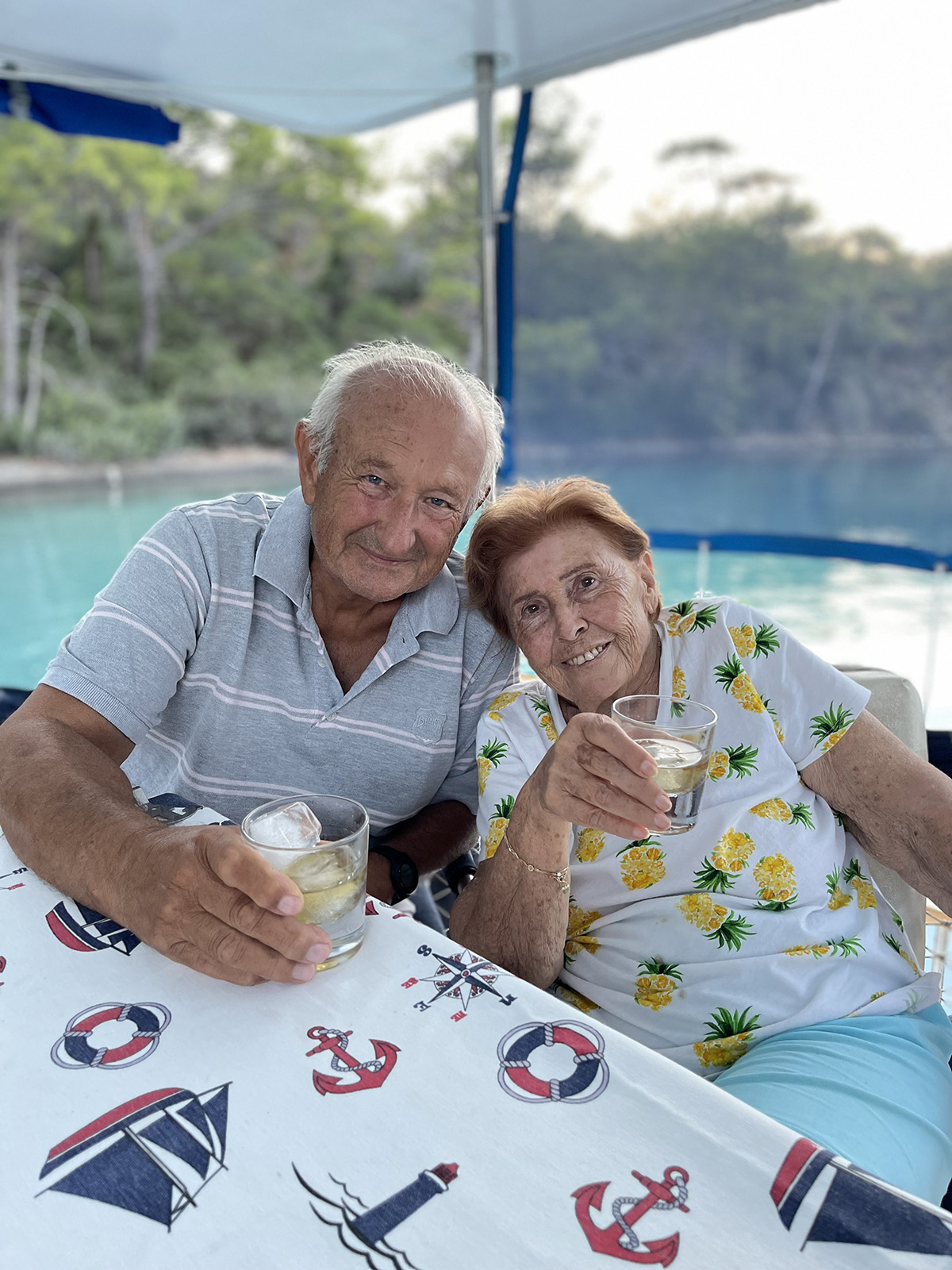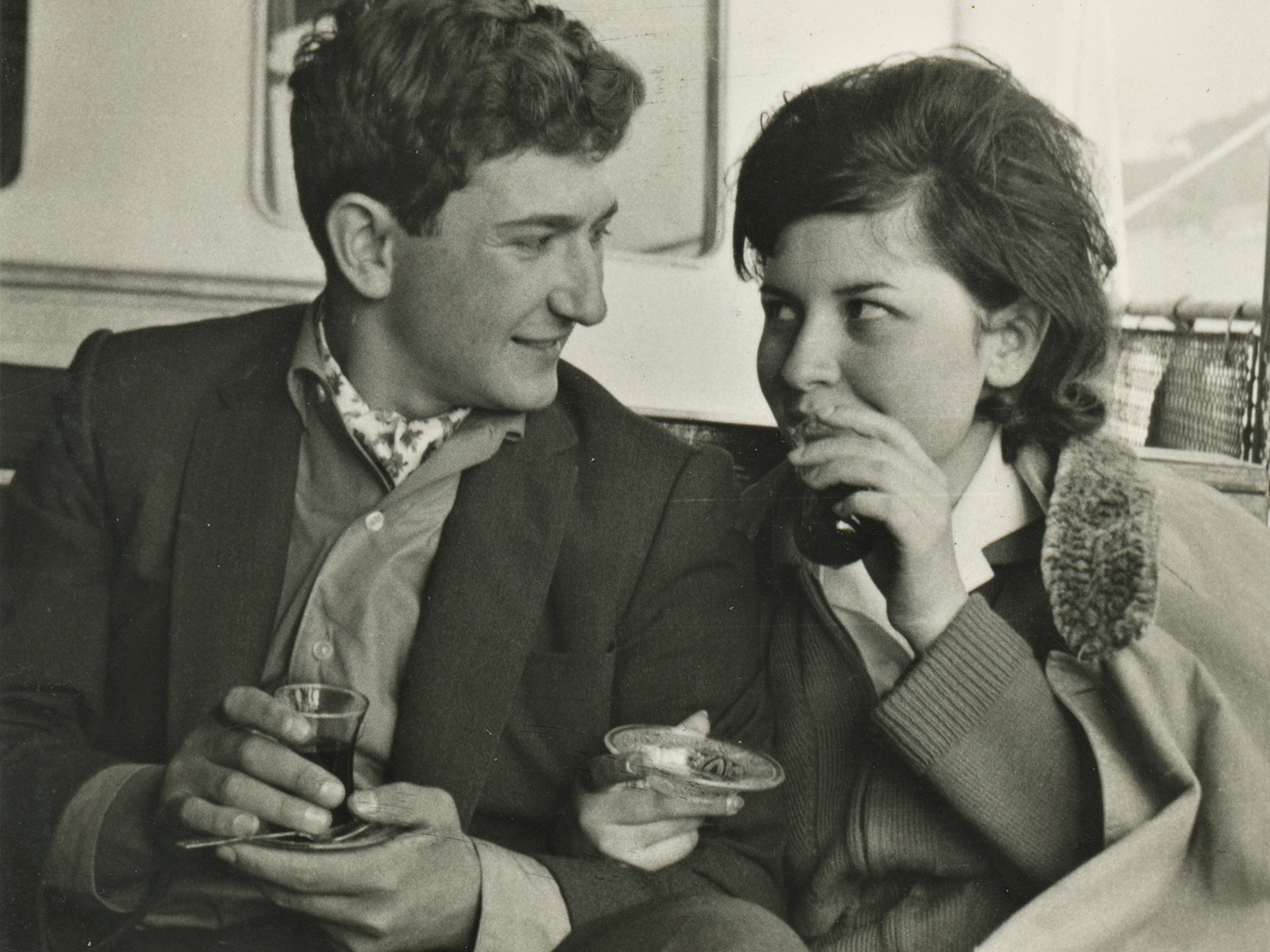Turgay Noyan: “The sea softens a person. It smooths their edges like the stones within…”
Turgay Noyan is a person who has made significant contributions to the institutionalization of maritime in Türkiye. His wife Sevgi Noyan, on the other hand, has achieved this in her own circle. They got together and made their children, grandchildren and friends’ sailors. They lived their lives embraced by the sea. Their recently published collaborative book "Bir Aşk Dört Kuma" (One Love, Four Fellow Spouses) reveals this unique story in all its details. Our takeaway from the book and the conversation we had with them is: New generations will yearn for the Istanbul they lived in. But we will probably yearn the most for their view of the world, of relationships, and of the sea.
Interview: Kayhan Yavuz, Setur Marinas Highlights Editor
Kayhan Yavuz: Mrs. Sevgi, could you briefly describe yourself to us?
Sevgi Noyan: Do I have to tell my age?
Turgay Noyan: Do not!
SN: I can, why not!? Yes, I am 82 years old, I am a housewife, and I have been on boats for years. I hope it will last longer.
KY: I think it is impossible for someone to look at you and Mr. Turgay and believe that you are in your 80s!
SN: Maybe it's the sea! Living at sea...
KY: So, how much of those 82 years did you spend at sea?
SN: Since 1965.
TN: There is the rowboat too! She did not mention it but we would go fishing with the rowboat, we even sailed with it. If you include it too, it is safe to say since 1962. But it has been everything for us since 1965!
KY: So, you have been at sea as husband and wife for 62 years. Mr. Turgay, if I asked you to "briefly describe yourself to us", it would take hours for you to do that. You are a sailor, but you were also a prominent name in the world of music at one point. You are also a composer. Not to mention your journalist, author and non-governmental organization founder aspects. We might not have time for all of them, so I wanted to mentioned them before giving the floor to you.
TN: I was born in '44. When I started working in Bebek, Istanbul by chance, we got close to the sea. They call it yachting now but I do not like that saying because it makes you think of great riches. We are amateur sailors. I have a wooden boat built in Sürmene. We are trying to maintain it.
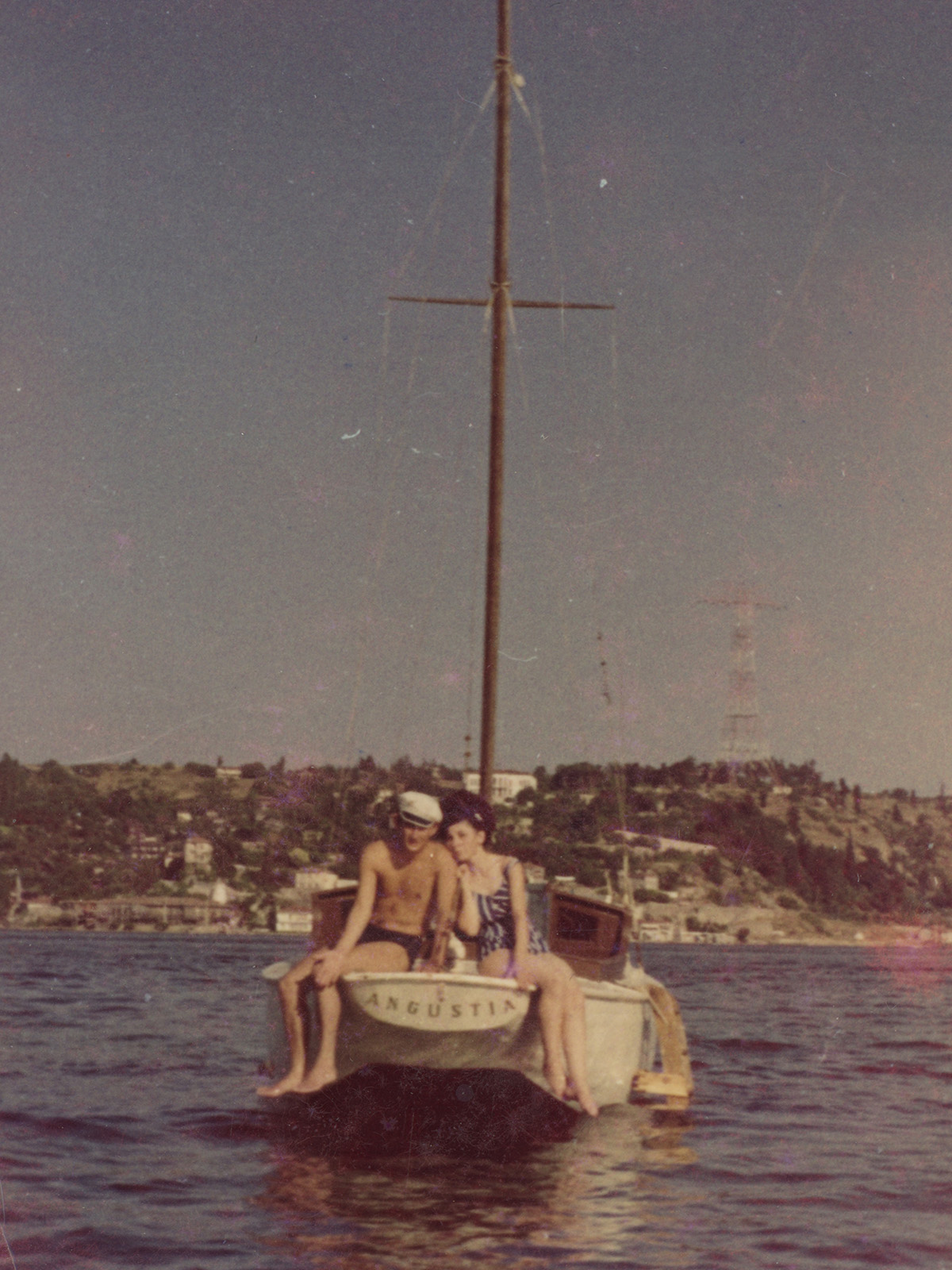
KY: You are also still writing.
TN: Yes, I am a member of the Higher Board of Press Council. I also do ghost editing at Naviga. Naviga is managed by my daughter Tuba. I do not have a title in the magazine, but they send me the articles first, then I read and review them. You could say I have the title of 'father'. I also write books about sailors. I am trying to make people love the sea.
KY: That is one of the facts that I find interesting. Not everyone is so eager to infect others with their interests. But it is the opposite for sailors. They want everyone to become one. Why do you think that is?
SN: I had zero interest in the sea. We moved from Kayseri to Istanbul, and I did not know how to swim. Turgay and I met during high school. At first I got attracted to him, then I started getting attracted to the sea because he liked it.
KY: Did you have any worries? Like, how can I do it?
SN: No, I was never afraid as long as he was with me. We took our kids to the sea when they were 20 days old, they grow up at the sea. We would work on the boat when schools were closed, and we would return a week before the schools opened.
TN: We stayed in Çeşme for about 15 years, in the then Altın Yunus marina. We were living on the boat with the kids. I was working for Yeni Asır newspaper back then, I was their Istanbul representative. I was visiting Çeşme on weekends.
KY: So where does your interest in the sea come from?
TN: We started working at the Tavern of Toma from Gascony in Bebek in 1965. I was playing the accordion. We were living in Dereboyu Street.
SN: I walked to my wedding all the way from home in a wedding dress.
TN: Yes, in a wedding dress. There was Pharmacist Necip Akar, the owner of Puro and Fay, Gripin. His son-in-law Doctor Vedat Özsezen had a sailboat that looked like a dragon. He would put on his sparkling sailing outfit, hat on his head, cigar in his mouth, take his children and go sailing in the evening. In fact, there were only three big boats in Bebek Bay at that time. There were about 200 boats in total in Istanbul. Anyway, we were inspired by him. But of course, we did not have his means, we started out with a rowboat. There was this boater, called Kibar (Kind) Ali. I asked him, "Do you think you could fit sails on this rowboat?", and he said "Of course". We put up a pole mast and became sailors on the rowboat.
KY: Speaking of which, Oda Boro sewed Kısmet's sails at home. You must have been impressed by Sadun Boro's voyage around the world.
TN: Of course, it was a marvelous thing. How they published it in Hürriyet is also an important example in terms of journalism. It is so important that it can be taught in schools. The newspaper covered the voyage so well, step by step, that the entire country's eyes and ears were focused on Sadun's journey. We were all in a state of wonder.
KY: Sadun Boro's voyage is significant for Türkiye, right?
TN: Of course, it is the first. It conveys a message to us all: chase your dreams. To answer your previous question... When we launched Naviga magazine, our slogan was "Let's multiply in the seas!" Because I do not believe that there is any other sport in the world like sailing, there is no other sport that comes close to it. First, you can do it from the moment you are born until you die, you just need healthy arms. Second, you can do it together with your family and loved ones. Third, boating is not as easy a sport as it seems. It never repeats itself. You always learn new things. Is there any other sport like this?
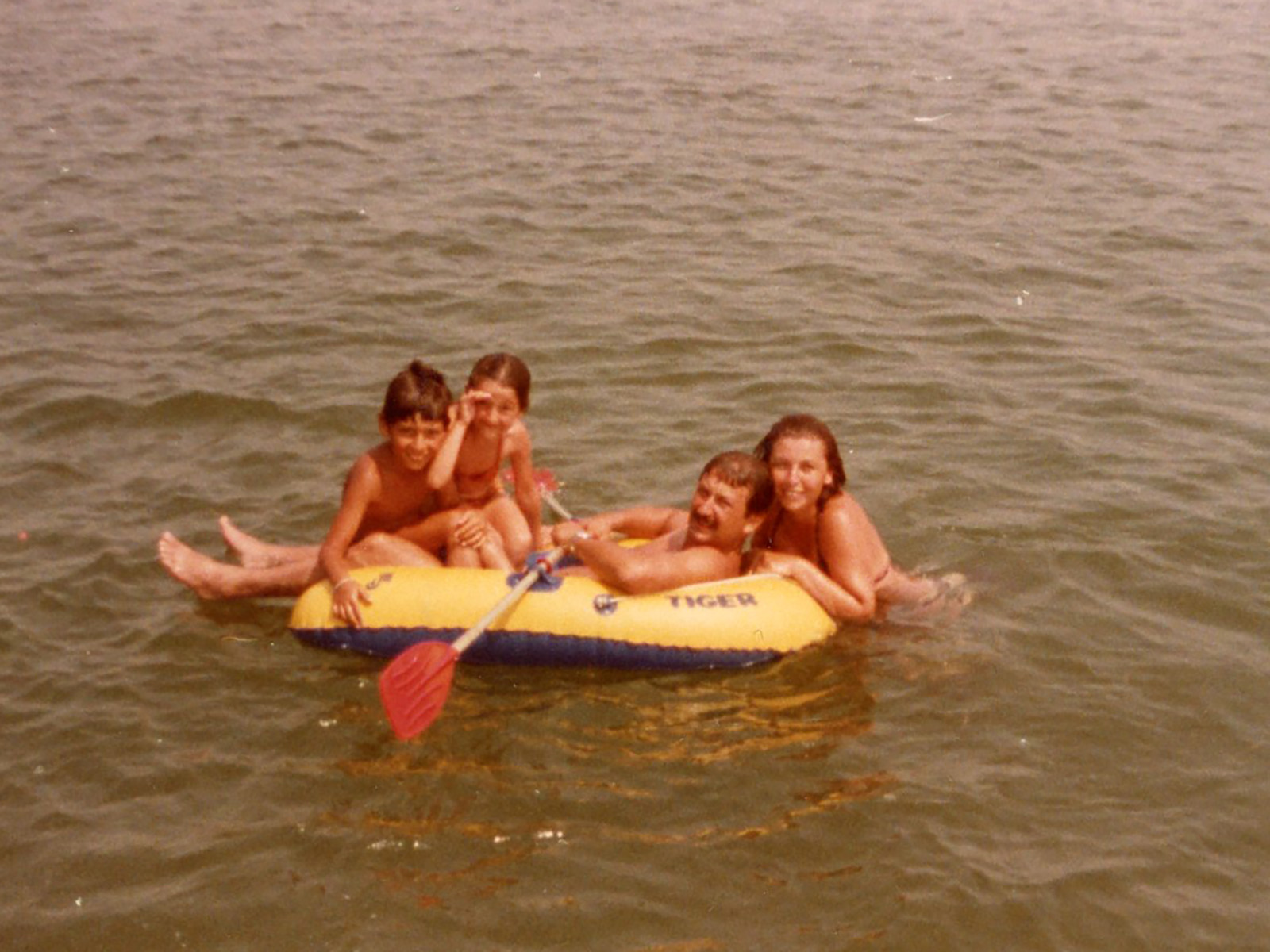
KY: Yeah, now that you put it like that, there actually is not.
TN: That is why, because we enjoy it so much, we want to make everyone love sailing. We want our loved ones to do it too.
KY: Mrs. Sevgi, there were not many women engaged in this during the times you started. For example, at that time they were reacting very much to Azra Erhat. What in the world is Mavi Yolculuk (Blue Voyage)? How can you live on a boat, you are not used to it. Everyone tried to discourage her. Perhaps today's women do not experience it that much, but what were the reactions when you started?
SN: I did not receive many negative reactions. Like, my mother cooked meals and brought them to the boat. She would pray on the boat. Obviously, when the boat changed direction, the qibla would also be off. That would make us laugh, watching her challenge. The real challenge was learning to sail, the boats were not so comfortable as today.
TN: I received more reactions. My father was among the first pilots of Türkiye, doing acrobatics and such, but he was frightened of the sea. We are from Gaziantep, that may be the reason, not knowing the sea. He was furious when I had my first boat. But eventually he came on a few voyages with us.
KY: The sea is always in the background of your life. Whereas for most people the background is the city, the land. What is the difference between living and raising children with this view?
SN: We see enough of that in winter. But in the summer it is different. We have been to some very beautiful places, places you can only see by boat, very beautiful bays. That gives you some peace. Kids grow up healthy. We did not experience any diseases except pediatric ones.
TN: Kids started sailing when they were young. For example, a child who is an optimist is so lucky! They learn to make decisions in seconds, to help each other, to take responsibility. They stay on their own, develop. It is harder and much more time-consuming to acquire such skills on land. That is why it is fortunate to grow up at the sea.
KY: It is not so easy at sea. The boat has a small space. Sometimes things go wrong. Have you always gotten along this well? Have you never had a quarrel?
SN: Quarrels are no problem. Once the boat reaches a quiet bay, you forget all about it. Life starts all over again when you pick up your coffee or tea.
TN: There is this saying: If women did not forget the pain of childbirth, if sailors did not forget the storms, no child would be born and no one would go out to the sea.
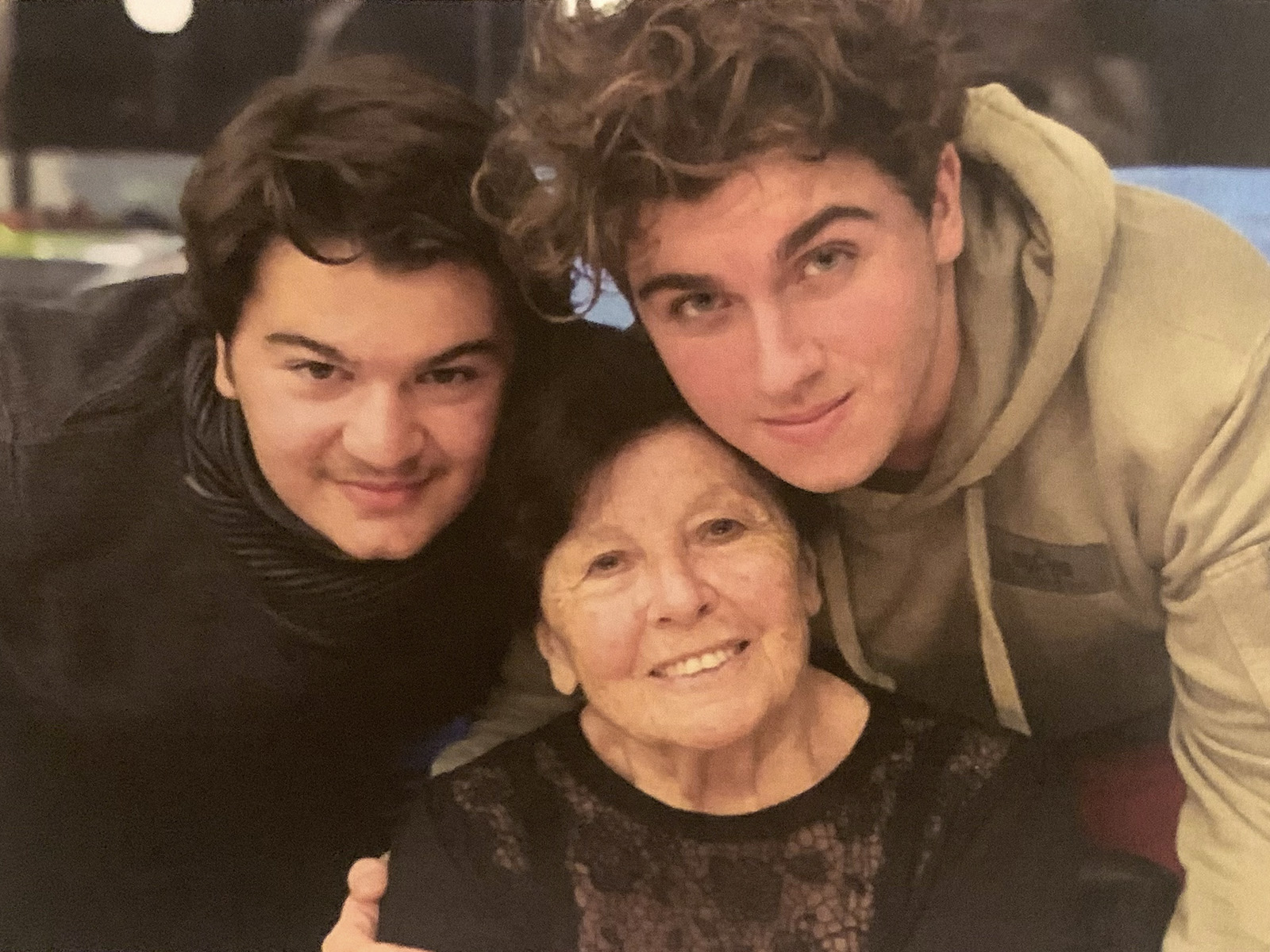
KY: That is very true! However, there are many couples who went on a world tour together and ended up divorced.
TN: Honestly, I cannot quite grasp it. After all, you are on a journey, you share things no matter what. You can get mad or angry at each other, but if you make a big deal out of everything, marriage will not work, nothing will work!
KY: Yeah, I thought you would say that. Knowing that, I wanted to make you say it so that this feeling of yours, your point of view, can touch and inspire everyone.
TN: I believe that, if people cannot get along already, there is no need to bother that much to break up, to go on a tour of the world.
KY: So, have you never thought of going on a tour of the world together?
TN: No, we have not. That is because I have always been trying to earn money. So I never had the savings for such a trip. Our boat is not suitable for it either. And there is this; your English has to be very good to go on a tour of the world. Mine was never that good. So I did not think about it.
SN: We have always done this with our family and loved ones. We loved it a lot!
KY: There is also the question of race. Now, I feel like racing is something else. Why is it necessary to race?
TN: It is not necessary to race. I am a pleasure sailor, not a racer. But we organized races. For example, when I was working for Sabah newspaper, we would organize the Naval Forces Cup. Races back then would be so spectacular. Award ceremonies, concerts, etc. It would be published in the newspaper day by day. Our greengrocer would be like "Turgay, who do you think is going to win the sailboat race?". Races have such charm. They excite people and get people to recognize maritime. It is sadly not the same today. Nobody is aware of it.
KY: What caused it?
TN: The naval power of a country consists of four pillars: First, fisherman. Second, merchant ships. Third, Naval Forces, and fourth, amateur sailors like us. These four pillars have to support and coordinate with each other. Since this is no longer the case, maritime is no longer talked about.
KY: That brings us to the question I would like to ask someone like you. So, why is the maritime culture not popular in our country? Why did this question become a frequently asked one?
SN: First of all, it comes from childhood. When parents are not interested, children are not interested. Another thing is, we overprotect children. Like, you will fall, you will drown. This approach has a negative impact on interest in the sea. We never thought that way. I would wash the kids' buttocks with seawater when they were 20 days old. There is also a general lack of knowledge. Our guests who sailed with us have all become sailors, for example. So, once you try, it happens.
KY: Did not anyone ever regret it?
SN: I have been told that a few people were over excited to be back on the land when they got off the boat, but I did not personally see them.
TN: Now I have something important to tell you. Maritime was more popular among the people in 60s. Even the grocer or barber had a rowboat. They would go out in the evenings and catch mackerels. Because the coast of Istanbul was just sandy beaches from Kadıköy to Tuzla. When Mayor Bedrettin Dalan poured concrete along the coast, the public's relationship with the sea was severed, and concrete was poured into that relationship as well. The sea used to dump pollution on the coast. Now it hits the concrete, goes back and thus pollution of the sea is increasing. It is how they killed Marmara. This is a great disservice to Istanbul. There is a second reason. Boating, like everything else, has become an expensive endeavor. Young ones want to do it, but their income is not enough anymore.
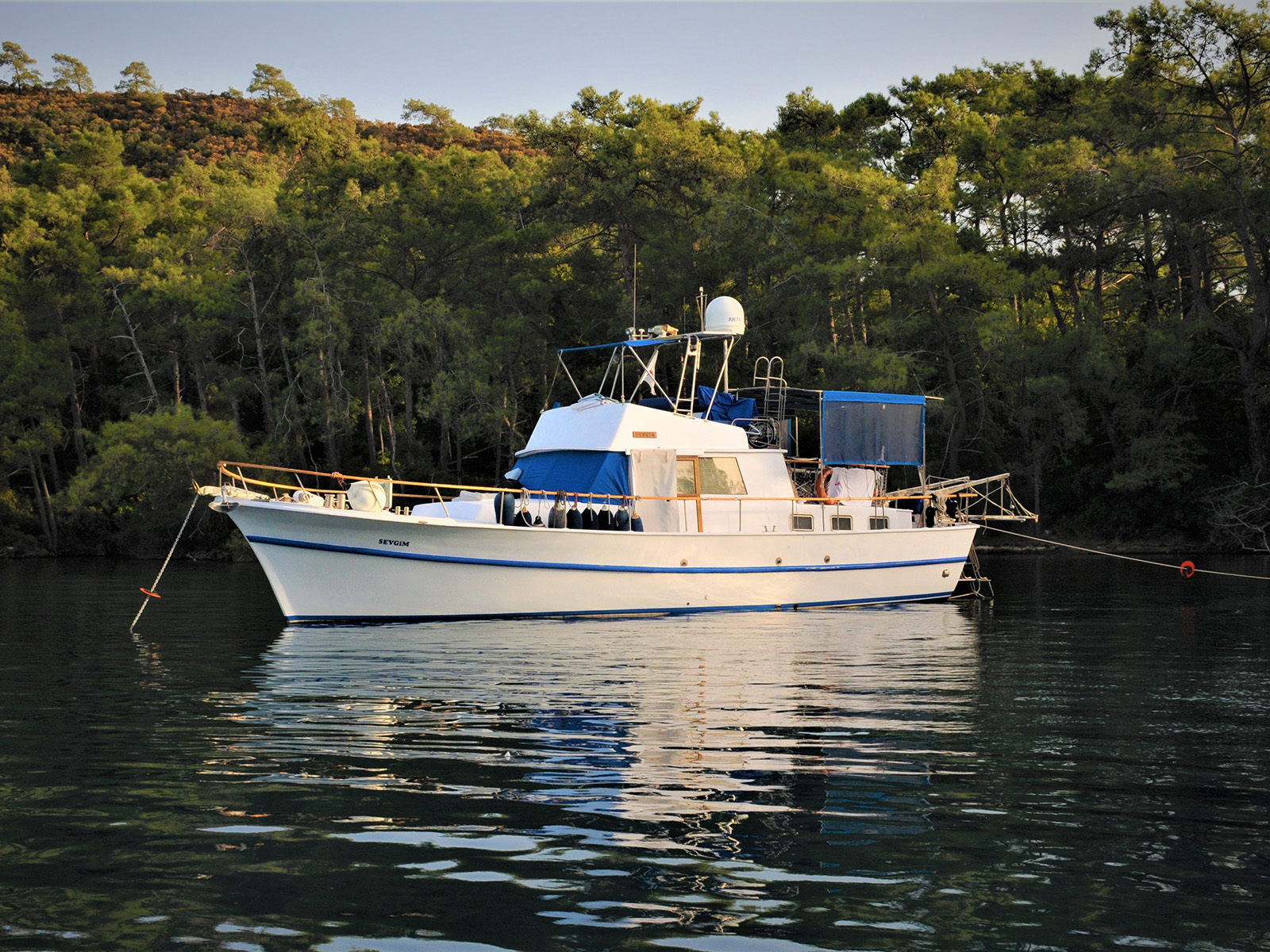
KY: I guess yachting has also become somewhat synonymous with these super yachts over time. People started to think it is a rich person's thing.
TN: Unfortunately, the public looks at amateur sailors from afar and with misinformation. Even politicians say, "Yachts get cheap, tax-free fuel." But we get the fuel at normal price. It is even a little more expensive. I do not remember using a single liter of cheap fuel to date. There is a lot of misinformation and misperceptions. However, it is also obvious that sailing has become more expensive than it used to be. All that aside, you get the boat, where are you going to moor it? Marinas are not enough. There is nowhere to moor at the sea. There is no place that you can drop off your guest, let alone mooring. Our boat used to be in Bebek. Today, you cannot even get in there. So boating has become very difficult in Istanbul.
KY: What should be done?
TN: For one, there should be more marinas, but I think marinas should be located outside the bays. On the other hand, Municipalities should build neighborhood piers and allow free use of these piers for those who have boats. If these things happen, you will see how the love of the sea becomes popular. Because, even though we are not exactly sailors as a nation, we adapt quickly to the sea.
KY: Those who are engaged with the sea also engage with art. You, for example, have nearly 200 compositions and eight books. Does the sea make you softer towards life?
TN: There is an aspect of the sea that polishes you. The late Cahit Üren, retired naval officer and general manager of the Turkish Offshore Racing Club TAYK, always had two rocks on his desk. Two rocks, one from the land and one from the sea. One was sharp all over, the one that came out of the sea was soft all over. Cahit would say, "This is what the sea does to a person."
SN: The sea teaches you to endure, it teaches you to be patient. You also make a lot of friends from everywhere, local and foreign.
KY: Yeah, on land people are segregated, ghettoized. But you cannot do that at sea, you have to intertwine.
SN: You eat and drink together. There was no television back then, too. So you are little bit compelled to chat and share. You have to be understanding.
KY: Okay, so, if you were in my place, what else would you ask yourself?
TN: If you asked me what it takes to decide whether one is lucky in life or not, I would say this: Two things! You have to love your job and your spouse. I think that is the only way to happiness. We are very lucky. I am very lucky. I have always done the job that I loved and shared my life with the person I love the most.
KY: Mr. Turgay, you are not the only one that is lucky. We are also lucky because we had the opportunity to get to know you and have this interview. I would like to thank you so much.
SN: You are very welcome.
